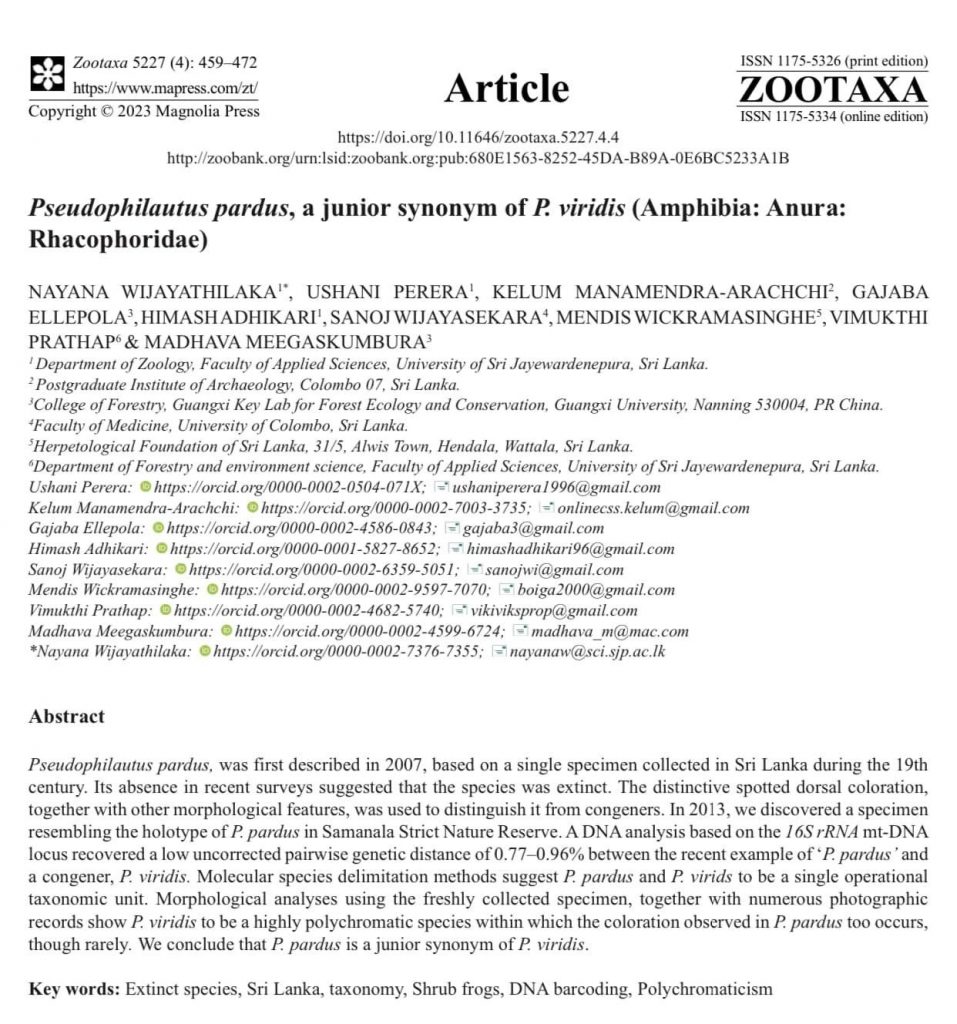Pseudophilautus pardus, was first described in 2007, based on a single specimen collected in Sri Lanka during the 19th century. Its absence in recent surveys suggested that the species was extinct. The distinctive spotted dorsal coloration, together with other morphological features, was used to distinguish it from congeners. In 2013, we discovered a specimen resembling the holotype of P. pardus in Samanala Strict Nature Reserve. A DNA analysis based on the 16S rRNA mt-DNA locus recovered a low uncorrected pairwise genetic distance of 0.77–0.96% between the recent example of ‘P. pardus’ and a congener, P. viridis. Molecular species delimitation methods suggest P. pardus and P. virids to be a single operational taxonomic unit. Morphological analyses using the freshly collected specimen, together with numerous photographic records show P. viridis to be a highly polychromatic species within which the coloration observed in P. pardus too occurs, though rarely. We conclude that P. pardus is a junior synonym of P. viridis.
https://www.biotaxa.org/Zootaxa/article/view/zootaxa.5227.4.4
WIJAYATHILAKA, N., PERERA, U., MANAMENDRA-ARACHCHI, K.E.L.U.M., ELLEPOLA, G., ADHIKARI, H., WIJAYASEKARA, S., WICKRAMASINGHE, M., PRATHAP, V. and MEEGASKUMBURA, M., 2023. Pseudophilautus pardus, a junior synonym of P. viridis (Amphibia: Anura: Rhacophoridae). Zootaxa, 5227(4), pp.459-472.



